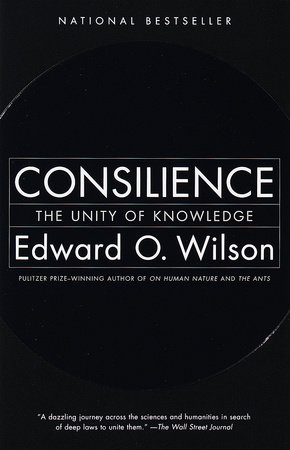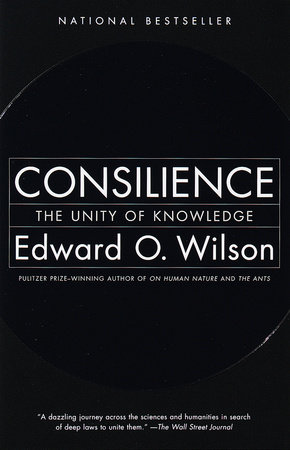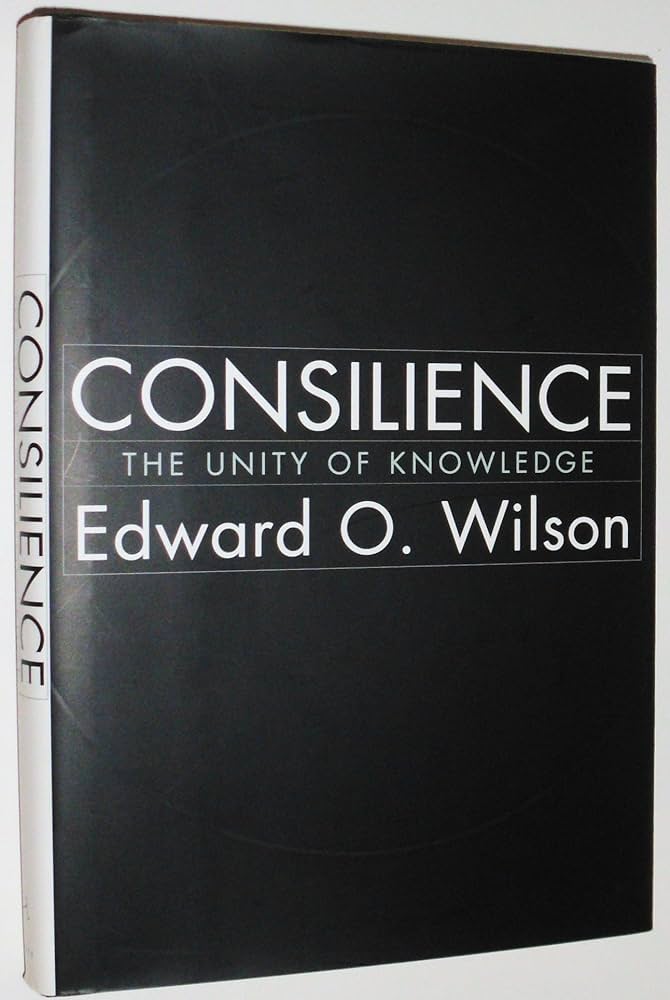Edward Osborne Wilson’s “Consilience” audiobook explores the unity of knowledge and the interconnection of sciences and humanities. Wilson argues for a synthesis of disciplines to solve complex problems.
Edward Osborne Wilson, a renowned biologist, delves into the concept of consilience in his groundbreaking audiobook. He believes that integrating various fields of study can lead to a deeper understanding of the world. Wilson emphasizes the importance of bridging gaps between disciplines like biology, social sciences, and humanities.
This synthesis, he argues, can address complex global issues more effectively. The audiobook invites listeners to rethink traditional academic boundaries and consider a more holistic approach to knowledge. Engaging and insightful, “Consilience” challenges conventional thinking and promotes interdisciplinary collaboration. This approach could transform how we tackle the world’s most pressing challenges.

Credit: www.audible.com
Life And Legacy Of E.o. Wilson
Edward Osborne Wilson, often known as E.O. Wilson, was a renowned biologist and author. His works, including the audiobook “Consilience,” have left a lasting impact on science. Wilson’s life journey and contributions to biology and myrmecology are remarkable.
Early Years And Academic Pursuits
E.O. Wilson was born on June 10, 1929, in Birmingham, Alabama. As a child, he had a keen interest in nature. This passion led him to study biology at the University of Alabama. Wilson earned a bachelor’s and master’s degree in biology.
He then pursued a Ph.D. at Harvard University. Here, he specialized in the study of ants. His dedication and hard work earned him recognition in the academic world.
Contributions To Biology And Myrmecology
Wilson made significant contributions to the field of biology. He is known as the “father of biodiversity.” His research on ants, or myrmecology, is groundbreaking. Wilson discovered many new species of ants.
He also developed the theory of island biogeography with Robert MacArthur. This theory explains the number and diversity of species on islands. Wilson’s work in sociobiology also sparked debates and discussions in the scientific community.
| Field | Contribution |
|---|---|
| Biology | Developed biodiversity concepts |
| Myrmecology | Discovered new ant species |
| Sociobiology | Explored social behaviors in animals |
Wilson’s legacy is vast and influential. He authored over 30 books, including “Consilience.” This work bridges the gap between sciences and humanities. Wilson’s ideas continue to inspire and educate many.
- Born in 1929 in Alabama
- Studied at the University of Alabama and Harvard
- Known as the “father of biodiversity”
- Developed the theory of island biogeography
- Authored over 30 books

Credit: www.penguinrandomhouse.com
Core Concepts Of ‘consilience’
Edward Osborne Wilson’s Consilience: The Unity of Knowledge is a groundbreaking work. It emphasizes the integration of disciplines for a unified understanding of the world. This audiobook unveils the core concepts that drive this idea.
The Unity Of Knowledge
Wilson argues that all knowledge is interconnected. He believes in a single, cohesive system that combines various fields. The goal is to create a comprehensive understanding of our universe.
By uniting scientific and humanistic knowledge, Wilson aims to bridge gaps. This approach can solve complex problems in society.
Interdisciplinary Research And Collaboration
Wilson stresses the importance of interdisciplinary research. He suggests collaboration between different academic fields. This can lead to new insights and innovations.
For example, combining biology with sociology can offer solutions to environmental issues. Interdisciplinary efforts can address global challenges more effectively.
| Field | Collaborative Potential |
|---|---|
| Biology | Environmental Policy |
| Physics | Medical Advances |
| Sociology | Community Development |
Through collaborative research, Wilson envisions a future where knowledge is shared. This can lead to a more informed and connected society.
Impact And Reception Of The Audiobook
The audiobook of Edward Osborne Wilson’s Consilience has made waves in both scientific and philosophical communities. It has brought Wilson’s groundbreaking ideas to a wider audience, thanks to its accessible format.
Influence On Scientific And Philosophical Thought
The audiobook has sparked renewed interest in interdisciplinary studies. Wilson’s idea of consilience—unifying knowledge from different disciplines—resonates deeply. Scientists and philosophers alike find inspiration in this integrated approach.
Listeners appreciate the way the audiobook breaks complex concepts into simple terms. This has made difficult topics more accessible to the public. Scholars use Wilson’s ideas to fuel new research and debates.
Critiques And Contemporary Relevance
While widely praised, the audiobook has also faced some critiques. Some argue that Wilson’s vision of consilience is too idealistic. Critics question the feasibility of merging all branches of knowledge.
Despite these critiques, the audiobook remains relevant. It encourages dialogue on the importance of interdisciplinary work. Young students and seasoned experts find value in Wilson’s thought-provoking ideas.
Overall, the audiobook of Consilience continues to influence and challenge listeners. It bridges gaps between diverse fields of knowledge, making it a valuable resource for lifelong learners.

Credit: www.penguinrandomhouse.com
Conclusion
Edward Osborne Wilson’s “Consilience” audiobook offers a profound exploration of knowledge and unity. This insightful work seamlessly bridges science and humanities. Embrace this audiobook to deepen your understanding and broaden your perspective. Wilson’s compelling narrative will captivate and inspire listeners, making it a must-listen for lifelong learners.
Dive into “Consilience” today.



